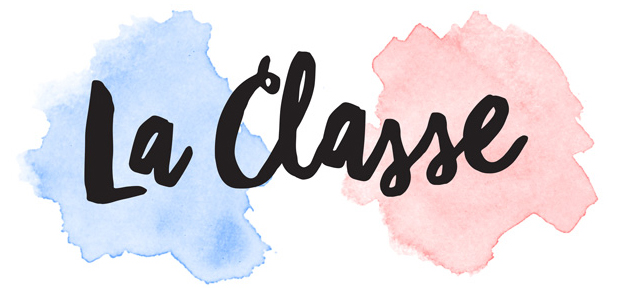The DELF (Diplôme d’études en langue française) and DALF (Diplôme Approfondi de langue française) diplomas are diplomas awarded by the French Ministry of Education which certify your level of French.
There are six independent diplomas, which correspond to the 6 levels of the Common European Framework of Reference for Languages (CEFRL).
The Common European Framework of Reference for Languages (CEFRL) is a guideline used to describe a learner’s language ability across Europe and was developed by the Council of Europe. The levels are described in 3 tiers : basic, independent and proficient. Each of these tiers have two levels A1 & A2, B1 & B2, C1 & C2. The six reference levels are widely accepted as the European standard for assessing an individual's language ability.
The CEFR describes what a learner can do in the four skills (listening, speaking, reading and writing) as they progress from A1 to C1.
The DELF and DALF diplomas can be useful and/or necessary for academic purposes (level B2 is a prerequisite to enrolling at university in France), for personal purposes (particularly for admission to French nationality, set at level B1 for oral comprehension and expression ) and/ or for professional purposes, as the DELF and DALF officially certify your ability to use French in real-life situations, so your future employer knows exactly your proficiency. Note that these diplomas are valid for life.
Descriptions of the different levels
The descriptions below have been taken from the CIEP (Centre International d’Études Pédagogiques) which is an institution of the French Ministry of National Education. One of its missions is to support for the promotion of the French language around the world by training teachers and education managers and by issuing the DELF & DALF diplomas. I have added the time of study required for each level and examples of the vocabulary and grammar points covered.
Basic Level
A1 (Breakthrough)
60 hours starting as a Beginner - This level recognises basic knowledge. It is the most basic level at which a language is used, called the "discovery" stage. At this stage, the learner can interact in a simple way: he/she can speak about him/herself and his/her immediate environment.
Vocabulary : numbers, nationalities, jobs, hobbies, family ...
Grammar : Present tense, negative, adjectives ...
A2 (Waystage)
100 to 120 hours after A1 - It recognises the linguistic competency of a basic user, considered as a social actor. The candidate can communicate in simple and routine tasks requiring the most common polite phrases and exchanges of information.
Vocabulary : transport, routine, home, food ...
Grammar : Reflexive verbs, perfect tense, imperfect tense ...
Independent Level
B1 (Threshold)
150 to 200 hours after A2 - At this level, the user becomes independent. He/she can maintain interaction: he/she can understand and maintain a discussion and give his/her opinion. He/she is capable of dealing with situations likely to arise in daily life.
Vocabulary : feelings, daily life, education, media ...
Grammar : Pluperfect, subjonctive, si clauses ...
B2 (Vantage)
180 to 220 hours after B1- A B2 user has a degree of independence that allows him/her to construct arguments to defend his/her opinion, explain his/her viewpoint and negotiate. At this level, the candidate has a degree of fluency and spontaneity in regular interactions and is capable of correcting his/her own mistakes.
Vocabulary : society, politics, environment, health, fashion ...
Grammar : Passé simple, verbs with prepositions, adjectives with prepositions ...
Proficient Level
C1 (Effective Operational Proficiency)
200 to 260 hours after B2 - Language users at level C1 are independent. They can express themselves fluently and spontaneously. They have a large vocabulary and can choose the appropriate expression to introduce their comments. They can produce clear, well-structured discourse without hesitation and which shows controlled use of structures.
C2 - (Mastery)
200 to 300 hours after C1 - Users' proficiency in the language is illustrated by precision, appropriateness and fluency of expression. C2 candidates are capable of using the language for academic and advanced-level purposes.
Preparation
It is entirely possible to prepare the diplomas on your own. However, taking classes with a teacher will help you eliminate exam stress !
Teachers have a strong understanding of the Common European Framework of Reference for Languages and will ...
include real-life situations activities in their teaching that are used in the exams.
make you practice role-plays orally, give you feedback on your performances and on how to improve these performances for the exams.
help you use concrete expressions (A1), exchange ideas (A2), express convictions (B1), argue a point (B2), develop ideas at length, justify them and use relevant examples (C1).
support you in mastering vocabulary & grammar points expected at each level.
go over the format of the exams with you in order to give you more confidence on the day.
Feel free to contact me if you are interested in preparing for your DELF or DALF diplomas with a teacher .
Resources
There are many resources which will help you prepare the DELF & DALF diplomas. I recommend the following ones to my students :
La collection DELF & DALF 100% Réussite chez les éditions Didier Français Langue Étrangère
La collection La Grammaire Progressive chez les éditions Clé International
Registration
There are many places around the world where you can take the DELF or DALF. Here is a list of all of the approved TCF centres worldwide: www.ciep.fr/en/tcf-tout-public/approved-tcf-test-centres





